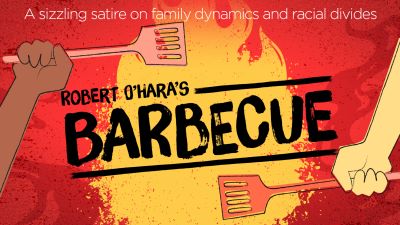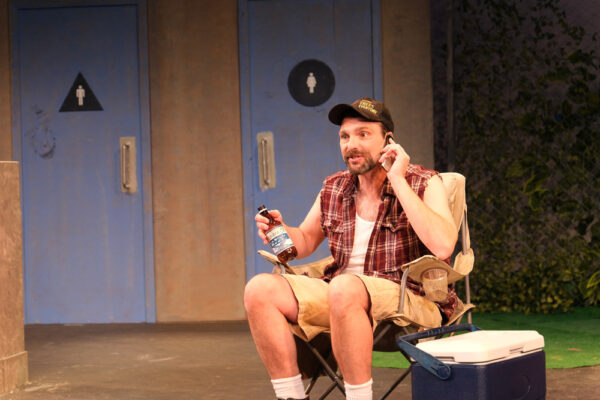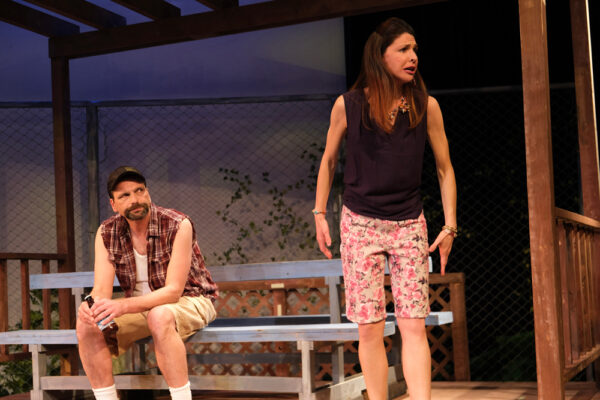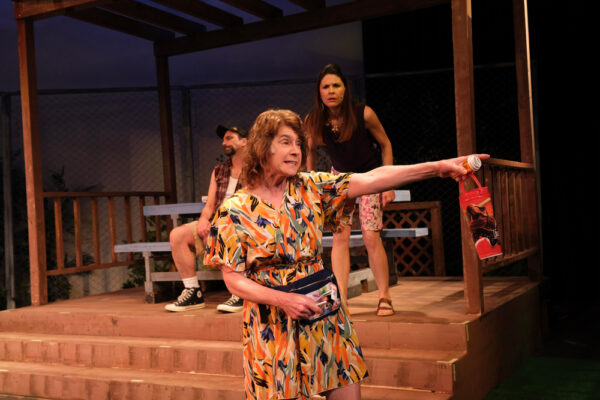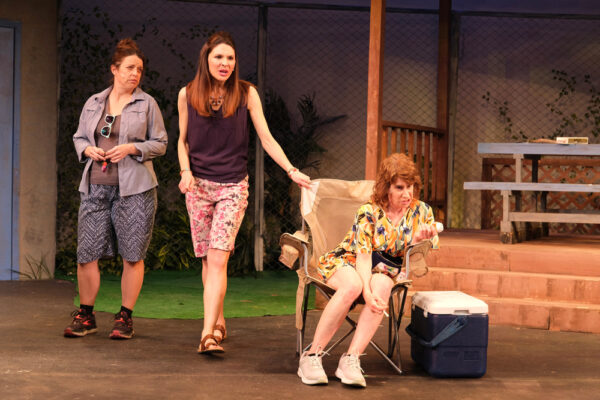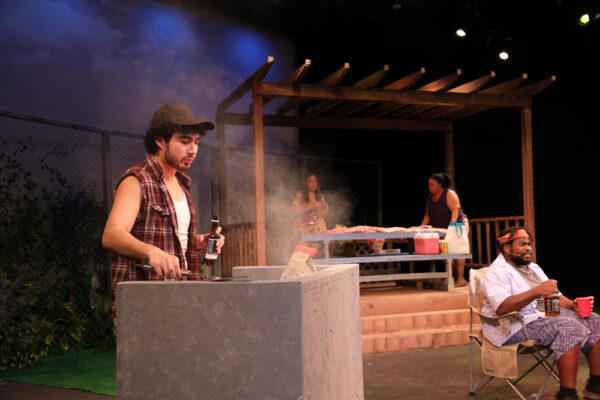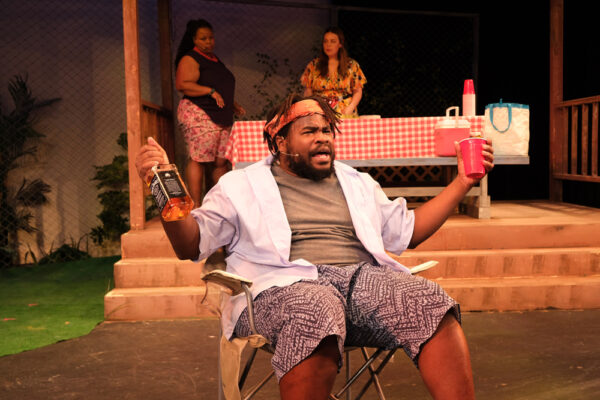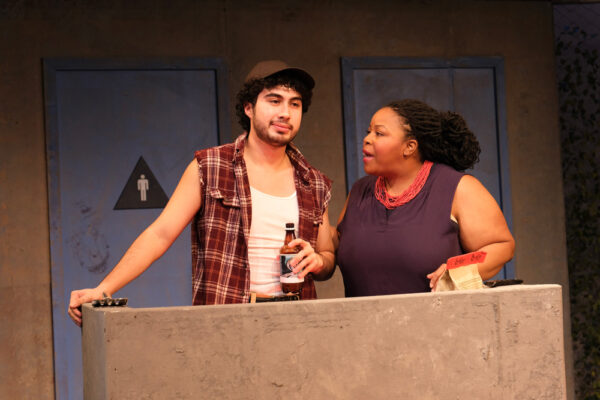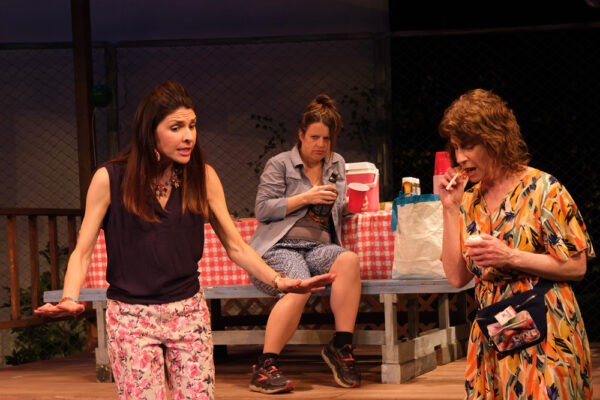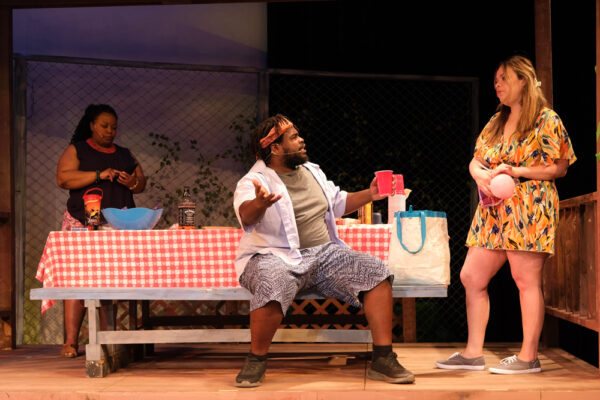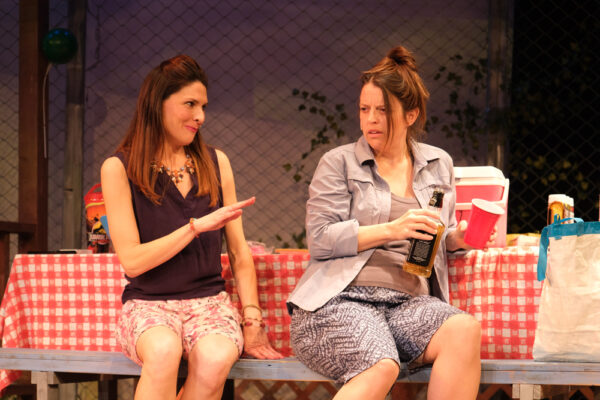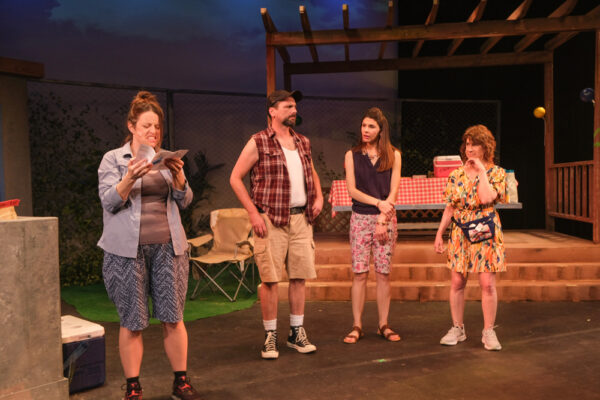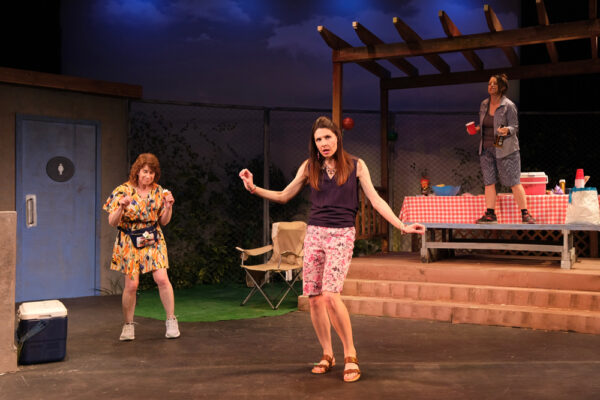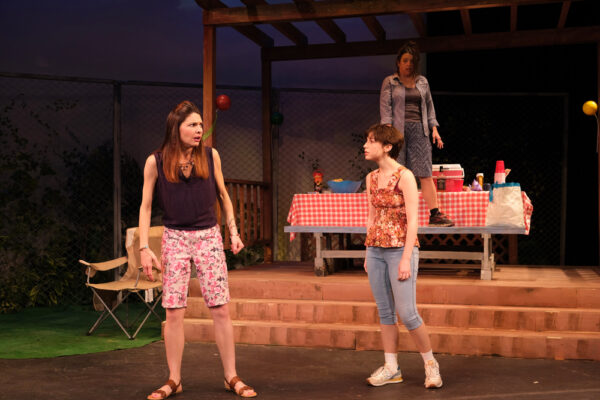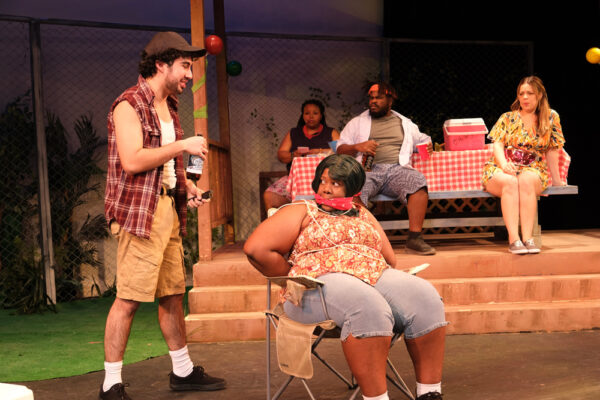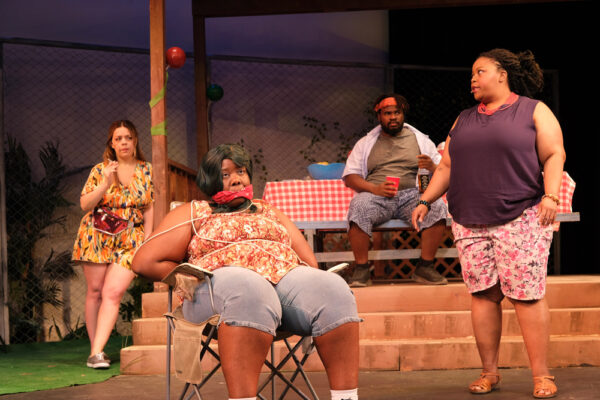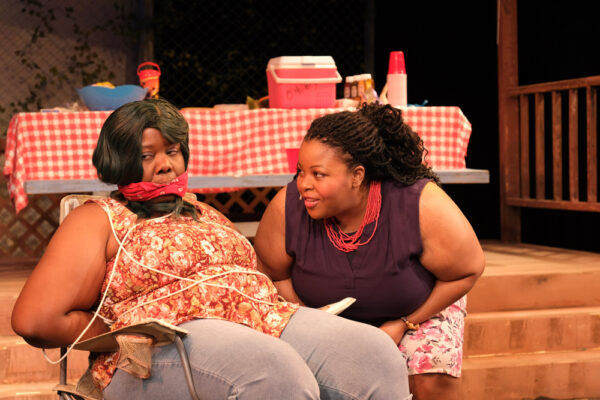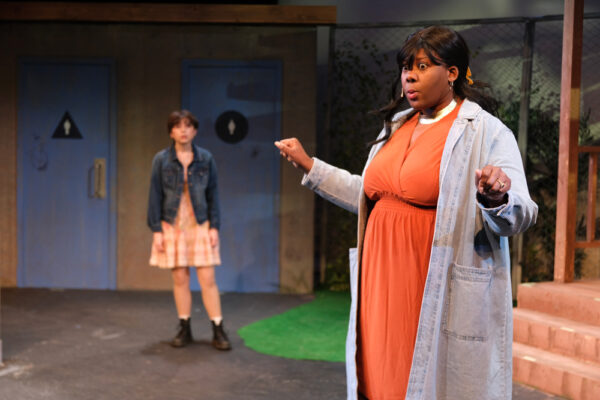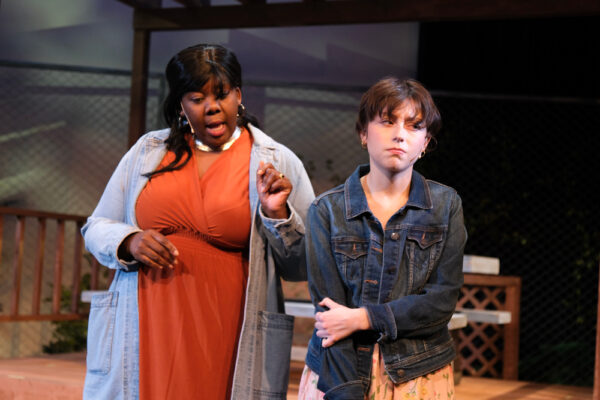NO ONE EATS, BUT THERE’S PLENTY TO CHEW ON
IN THE DETERMINEDLY DECEPTIVE BARBECUE
Robert O’Hara has been a significant contributor to the American theater scene since his first play debuted in 1996. A Black dramatist, O’Hara has received a collection of awards and reward nominations for his idiosyncratic comedies about the American social scene. His Bootycandy (2014) took the form of a sketch comedy show as it tackled a tough subject, the stigmatization of homosexuality in African-American culture.
Now, Coronado Playhouse is presenting O’Hara’s funny, stimulating, and sometimes perplexing Barbecue, written in 2015.
What we have onstage is a prime example of the dysfunctional family, which normally consists of one or more generations who spend a great deal of time engaging in bitter arguments with brothers, sisters, mothers, fathers and other relations on the family tree, often carrying grudges that are unrelenting in their verbal hostility.
Dysfunctional families have been major contributors to American comedy but occasionally can erupt into violence. O’Hara has largely gone down the comic path. Audiences should find the ferocious infighting hilarious. On the other hand, the embattled characters see nothing humorous in their animosities.
In Act I we’re presented with a domestic crisis like the documented ones in A&E’s Intervention series. Here the setting is an unnamed public park where the O’Mallery siblings are holding a putative barbecue that’s really a family reunion from hell. Four siblings–Lillie Anne, James, Adlean and Mario–are on edge already as they try to sort out their personal problems so as to present a united front as they will soon confront their sister with a reckoning. Barbara, or “Zippity Boom” as she’s cutely called for arcane reasons, is a drug-addicted crack ho whose lifestyle threatens her life and her family’s happiness. While waiting for Barbara, there is a move afoot, though not unanimous, to send her to Alaska for rehab.
For good measure, however, the other four O’Mallerys suffer their own dependencies–drugs, gambling, shopping, domestic abuse, mental illness, murderous in-laws, even cancer. All the characters are entrenched in the lowest level of their social class as symbolized by everyone’s abundant use of profanity.
But then O’Hara starts playing narrative tricks on the audience. The act starts out with the siblings played by white actors. After a sudden blackout, the lights come up on Black actors wearing the same costumes, with the exception of Zippity Boom, who–once she arrives–will resist and spend most of the first act tied to a chair with a gag in her mouth, while her siblings try to thrash out a resolution.
The narrative twists and turns continue in the second act with revelations that are not always easy to follow. The action resumes primarily with Zippity Boom as other performers eventually appear after switching costumes. Basically, Act II playfully critiques the obsession with misery memoirs and America’s unrelenting fixation on transforming personal downfall into entertainment. Delving further would spoil the experience, but in the curtain call the entire cast wears formal clothes.
Presiding over the entire production with imagination and insight is director Kimberly King. The siblings are played by seven females and three males (thus Mario switches to Marie). Casj Noir Young (Black) and Sofia Scafidi (white) play Zippity Boom. The others are Brittany Allen and Kathryn Schellinger (Lillie Anne), Julián Ortega Flores and Peter Zanko (James), Joana Ruiz and Charisse Zeff (Adlean), and Ace No-Doubt Spades (Mario) and DeNae Steele (Marie). The cast performs the raw, high-velocity dialogue with skill and versatility, offering distinct characterizations that are continually entertaining.
The backstage personnel have done a nifty job of utilizing the theater’s intimate playing space. Much credit goes to Blake McCarty (scenic designer), Lisa Samson (costume designer), Jared Jacobs (lighting designer), Miki Vale (sound designer), and Eb Harvey (videography).
Robert O’Hara’s clearly has serious issues on his mind with the determinedly deceptive Barbecue, which probes an abundance of the dramatist’s views on race, the American family, pop culture, and politics. I admit that all the identity shifting could be tough to pin down, but overall Barbecue provides an absorbing, challenging two hours.
photos by Ken Jacques Photography
Barbecue
Coronado Playhouse
1835 Strand Way in Coronado (San Diego)
Thurs and Fri at 8, Sat at 2 & 8; Sun at 2
ends on February 9, 2025, 2025
for tickets ($27), call 619.435.4856 or visit Coronado Playhouse
